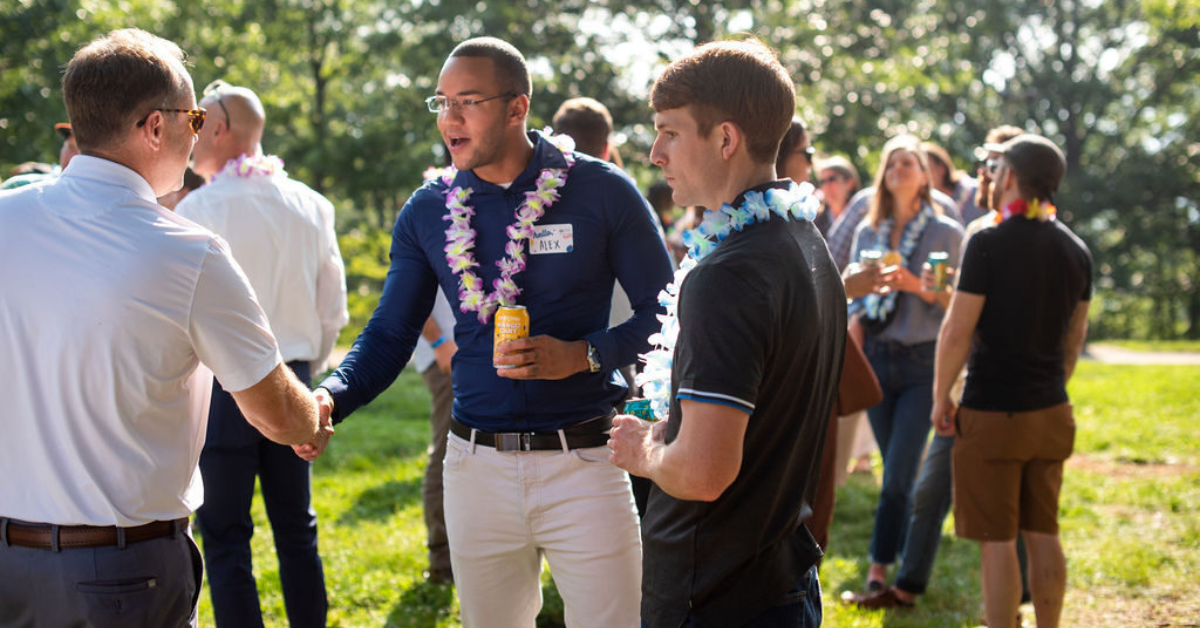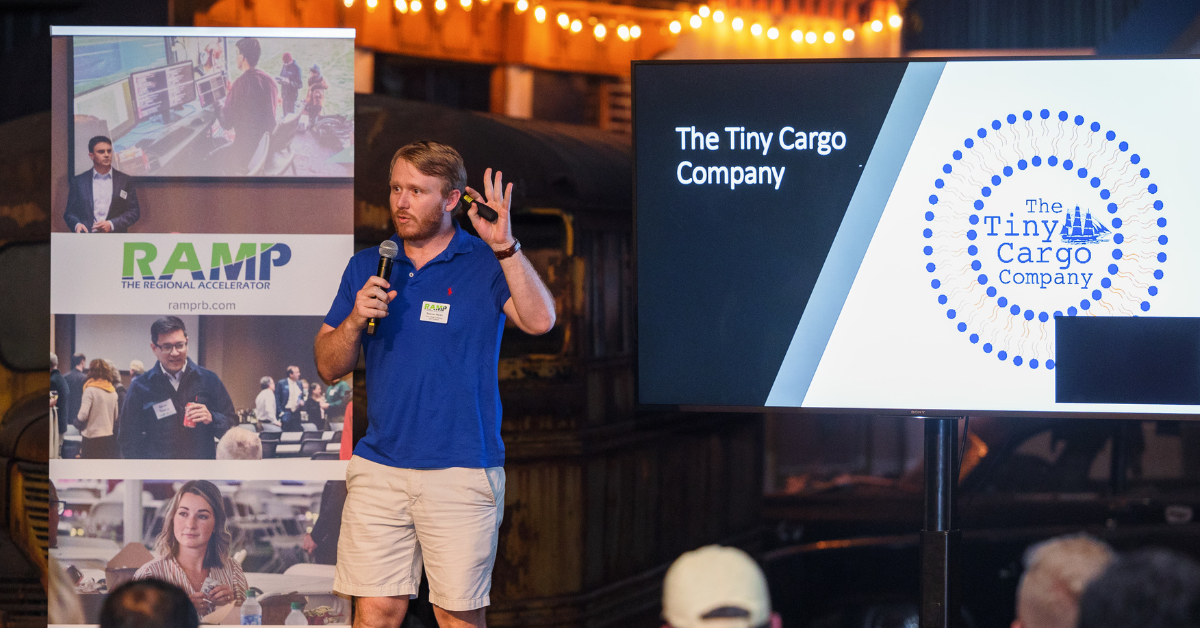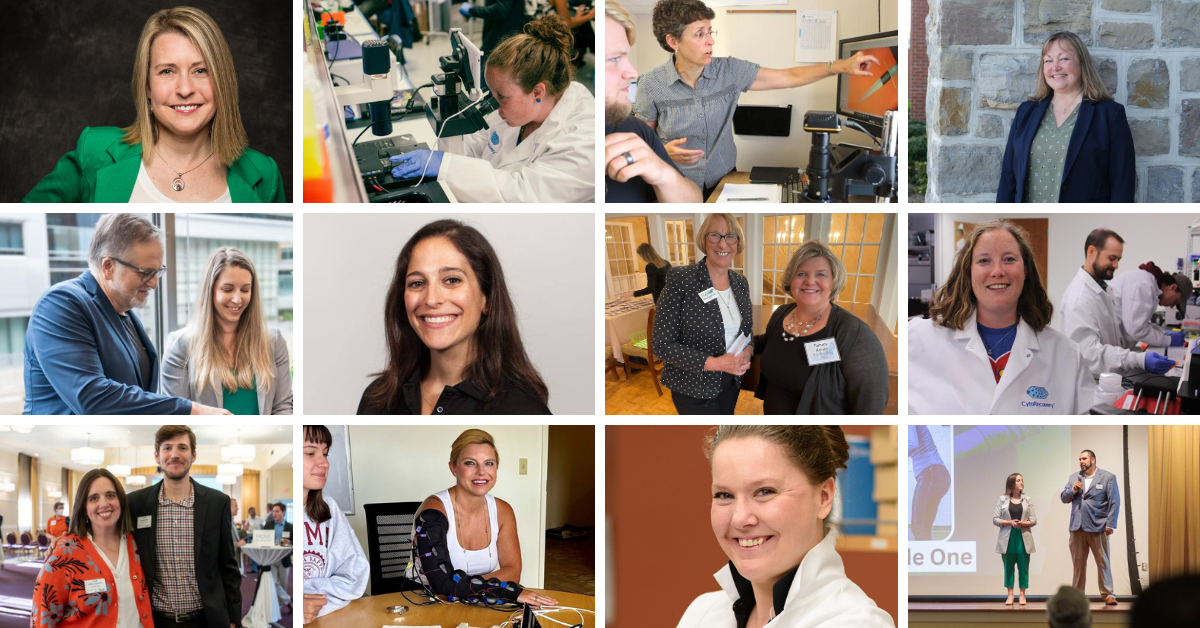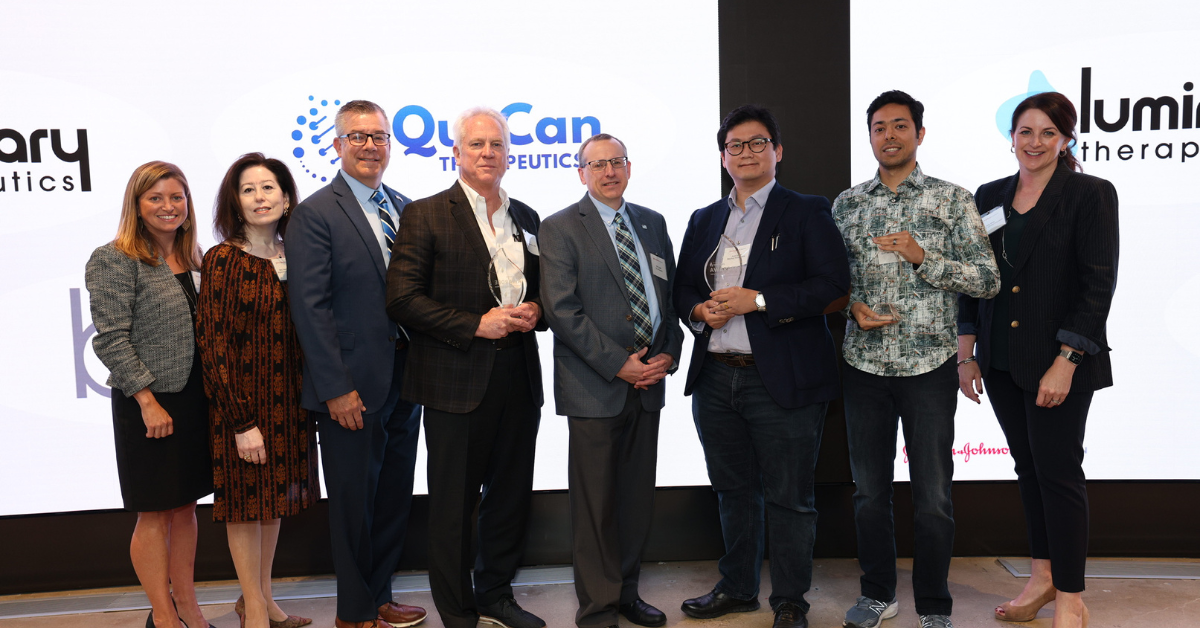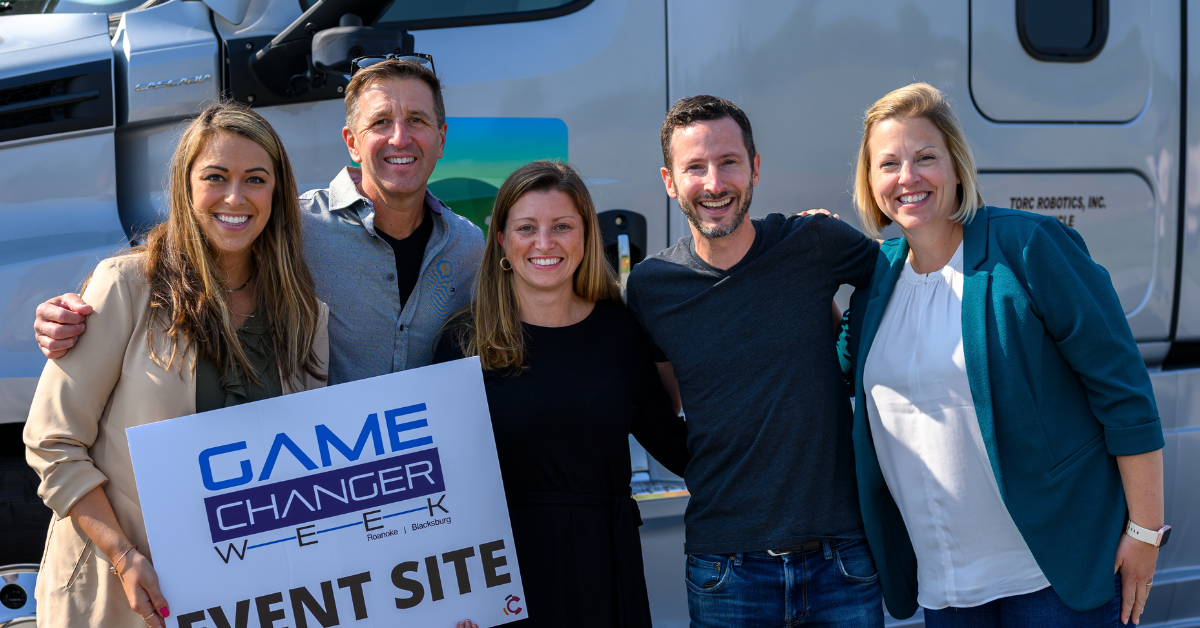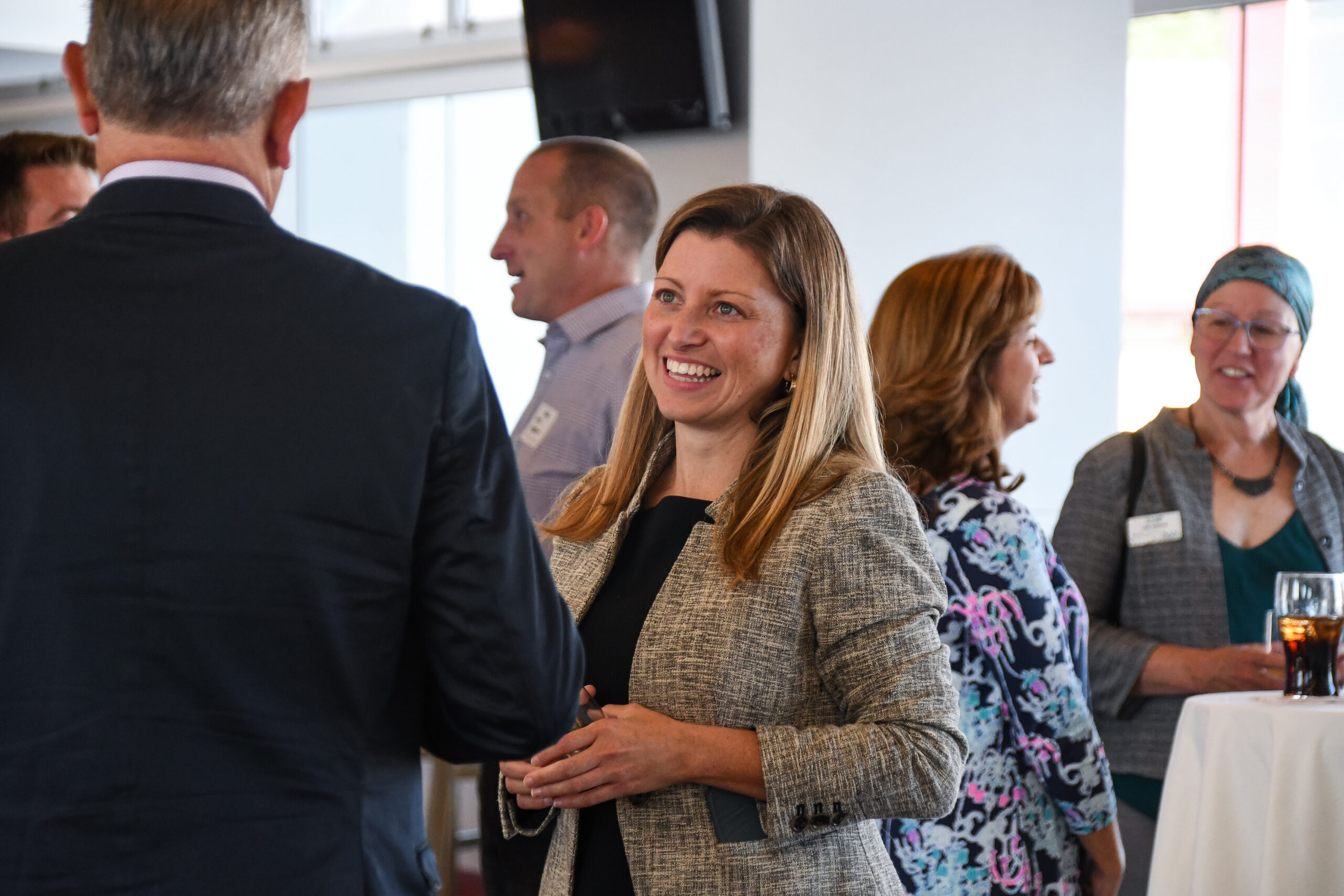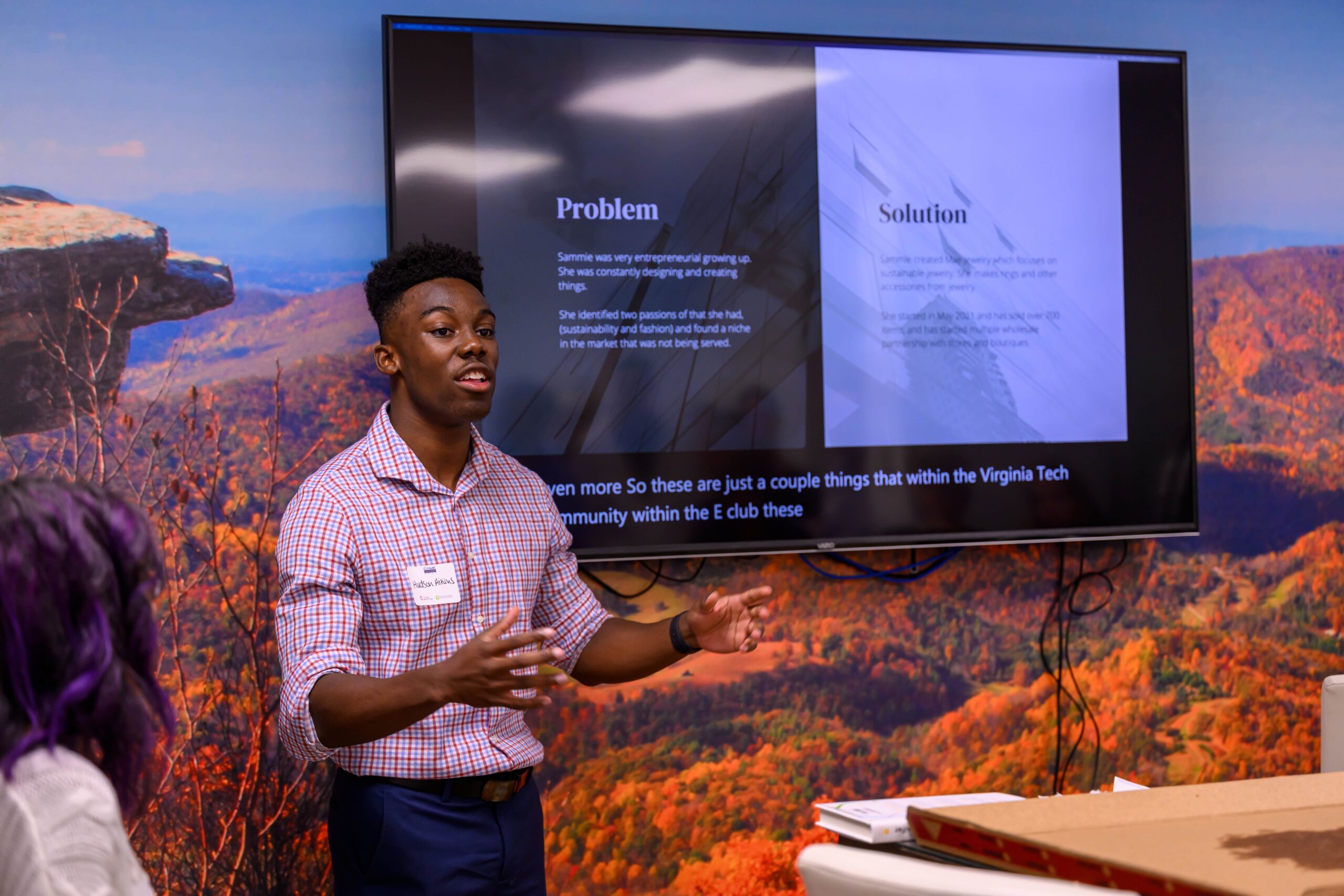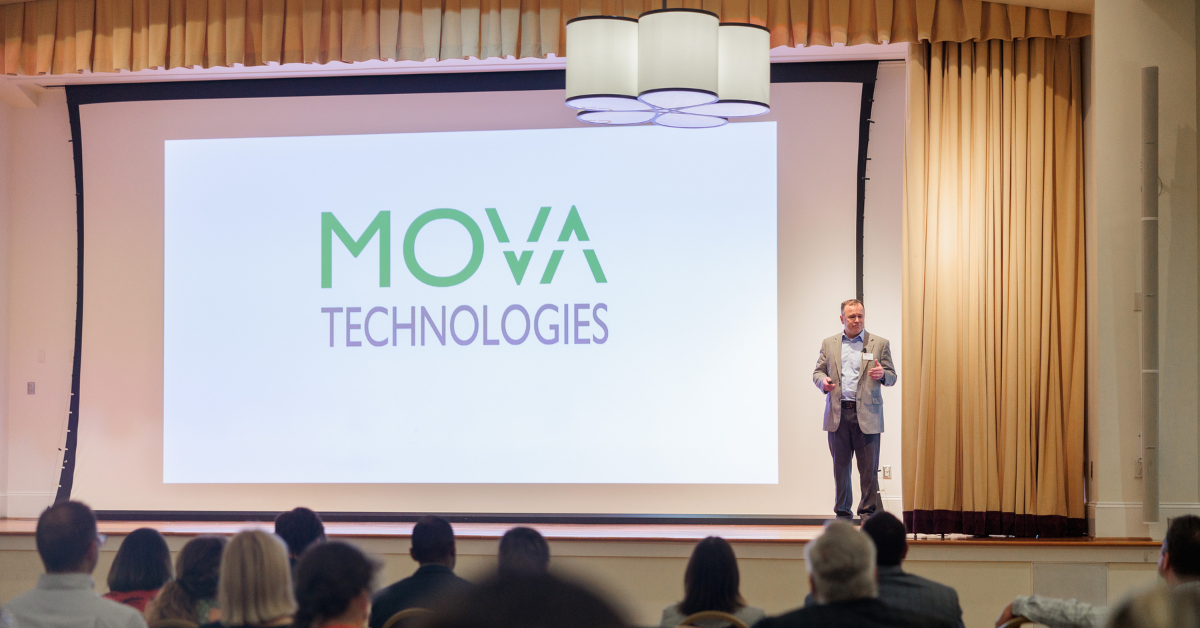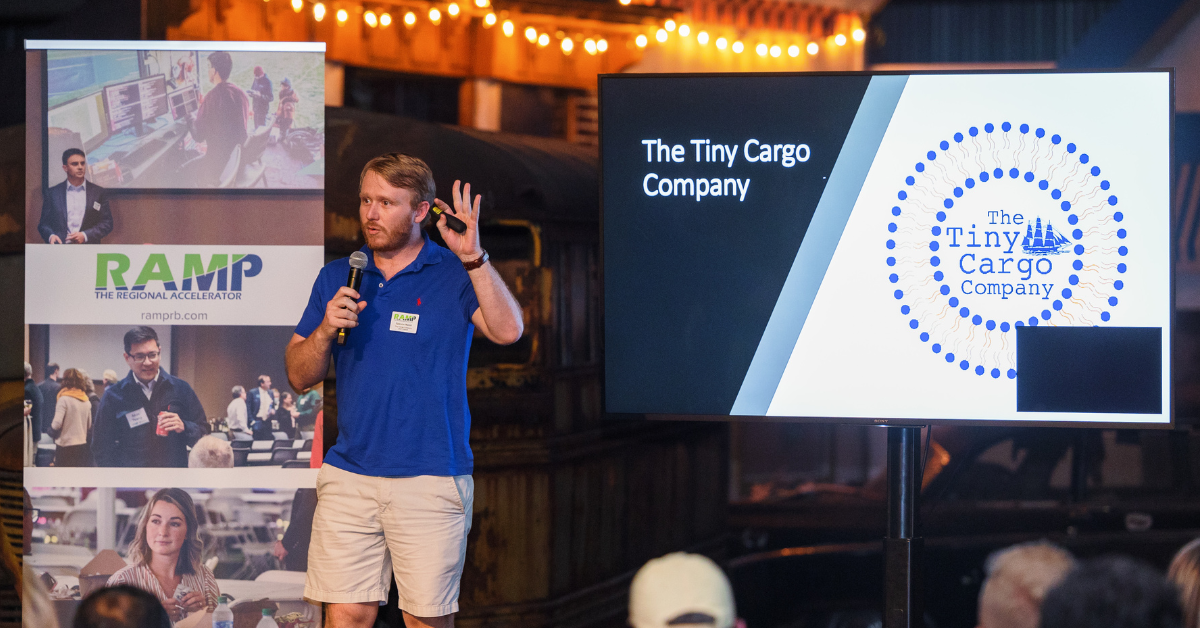Regional News
Virginia is fast-becoming a hot spot for STEM career opportunity and nowhere is that more evident than the Roanoke-Blacksburg region. The environment is primed to commercialize biotech, incite innovation, and […]
Funding helped scale RAMP, which supported 30 startups through an in-residence acceleration program, between October 2020 and September 2023. Leveraging a $982,443 Build to Scale grant from the U.S. Economic […]
Every day, women entrepreneurs and the businesses they lead have a lasting impact on their communities, including those served by the Roanoke-Blacksburg Technology Council. On Nov. 19, we’ll join the […]
Johnson & Johnson Innovation Names Awardees in the Advancing Oncology InnoVAtion QuickFire Challenge
From left to right: Erin Burcham, Verge & RBTC; Mary Trigiani, Virginia Tech Foundation; Don Halliwill, Carilion Clinic; Jeff Liter, Luminary Therapeutics (Awardee); Bob Cowell, City of Roanoke; Arvin Gouw, […]
The greatest minds, innovators, and thought leaders in the regional technology ecosystem are coming together for Game Changer Week in September. The series of events – Sept. 5-8 in Roanoke […]
Are you looking for a way to connect with other innovators, find inspiration, and set the tone for the upcoming year? Don’t miss Game Changer Week 2023! This incredible event […]
Congratulations to all the winners of this year’s competition! Clean Energy: Health Innovation General Innovation Technology Innovation People’s Choice For the first time, the Virginia Tech Corporate Research Center and […]
August 1, 2023 (Pulaski, Va.) – MOVA Technologies, Inc., is pleased to announce the opening of its Research and Development Facility in Pulaski that will allow for the enhanced design and […]
The DC QuickFire Challenge previously helped The Tiny Cargo Company accelerate their business and connected them with national mentors and resources. Current challenge is open to oncology innovators and includes […]
COgro Labs at the Virginia Tech Corporate Research Center is now open. The addition of shared and flexible lab space at 2200 Kraft Drive in Blacksburg was announced in late […]
